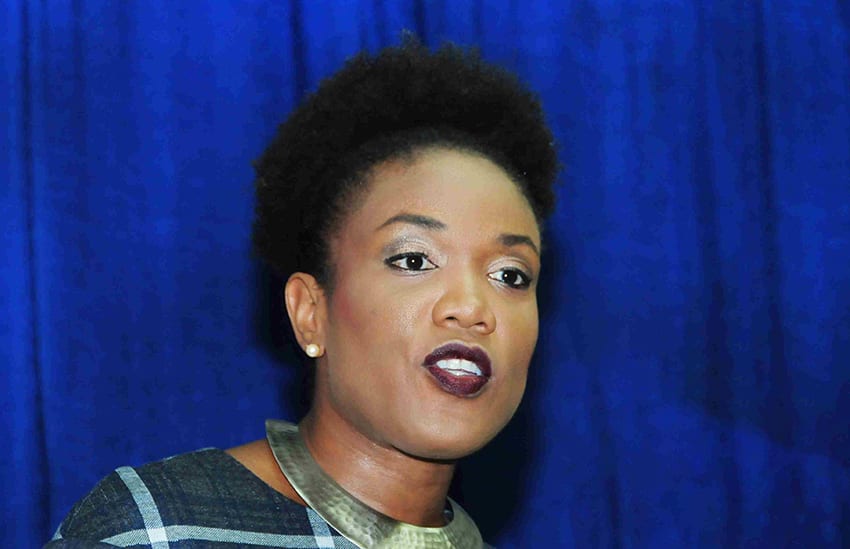
If the Caribbean is to rebuild better in the context of an ongoing pandemic and increasing climate threat, a systemic approach to both domestic and global financing is needed.
Minister in the Ministry of Economic Affairs and Investment, Marsha Caddle, shared this view yesterday during a Ministerial Panel hosted by the World Bank Group Executive Directors for Canada, Ireland, and the Caribbean, on the topic: Building Back Cleaner, Greener and Better Post COVID: Turning Point for the Caribbean.
Minister Caddle maintained that Caribbean countries have not been waiting for assistance; to the contrary, countries like Barbados have been leading in finding new ways to de-risk the investment environment for the private sector to stimulate job-led growth.
Notwithstanding, she continued, the global community must meet its commitments to developing countries made under the Paris Agreement.
One way of doing that, Ms. Caddle indicated, is by acknowledging that the COVID and climate crisis require a new way of treating debt, risk and vulnerability.
In explaining what is needed from international financial institutions, she stated: “If ever there was a time that a rise in debt was not a case of original sin it is COVID debt: a debt that is large, but unrelated to any prior actions of the government. Yet, adding this debt will for many countries, if not Barbados, cause debt to be less sustainable than before…. This is therefore not the time for lengthy, case-by-case assessments, but a new multilateral mechanism.”
Ms. Caddle outlined a new initiative that Barbados is leading in this regard: “We are working with our international partners and supporting the international introduction of new flexible multilateral instruments that introduce equity-like characteristics to COVID debt, where repayments are state-dependent, on whether COVID is past and growth is back, for instance. That would make this debt more sustainable, more repayable and therefore ultimately of higher credit quality.”
Pointing out that there will be no single recovery moment, but there must be a process of building deep, lasting resilience, the Economic Affairs and Investment Minister characterised as “incomprehensible” any recovery that was not built around climate resilience and the blue and green economy.
“This is why we have framed our Roofs-to-Reefs Programme as an investment prospectus for a resilient Barbados. All investments and legislative or regulatory change required for a resilient Barbados are represented there: actions needed by public, private and third sector,” she stated.
Minister Caddle also discussed how other Barbados COVID relief programmes were addressing risk, along with green and digital transformation.
“In BEST (the Barbados Employment and Sustainable Transformation Programme), government is investing in the private sector to finance their wages and investments on easy terms, boosting their returns and lowering their risks. By making it not debt but equity we are reducing their risks – they only pay it back when they are profitable – and they must engage in green recovery and digital transformation,” she stated.
The ministerial panel included Canada’s Minister of International Development, Karina Gould; and Grenada’s Minister of Climate Resilience and the Environment, Simon Steill.
